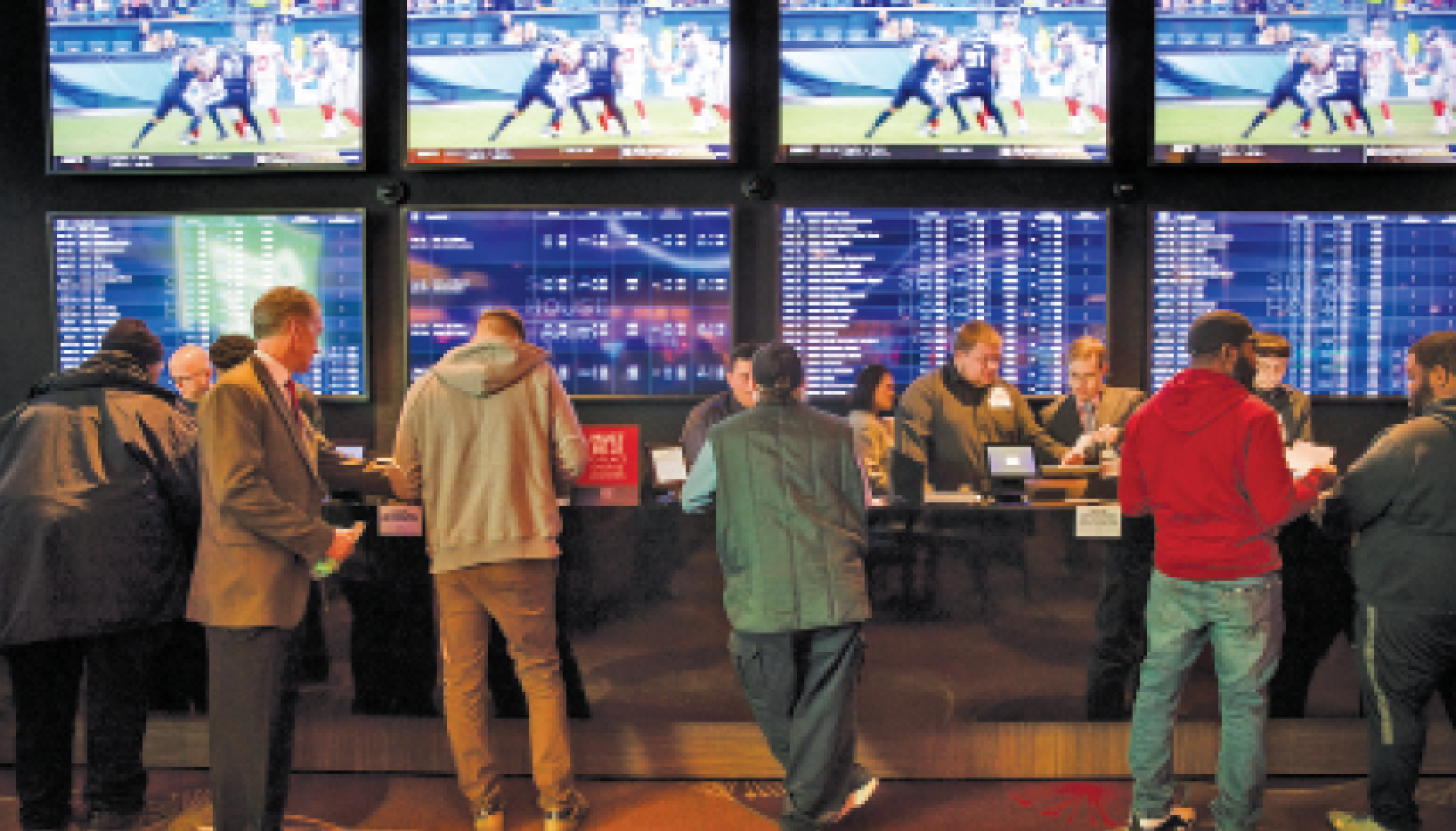LAS VEGAS — Taxing a winning sports wager? I had never even pondered such a scenario much less believed it could occur at a U.S. sportsbook.
However, that is precisely what Draft-Kings proposes for January 2025, to offset bloated tax rates in Illinois, New York, Pennsylvania and Vermont.
(According to an insider, it will not include horse racing.)
Chicago native Sam Panayotovich, betting analyst for the New England Sports Network and Fox Sports, says there is “no way” he’d shop at a book that taxes triumphs.
“They already tax you 10%,” he says of the typical -110 wager, “on the average loss in basketball and football, now they want to take money when you beat the house? That’s BS. No platform or technology is worth that.”
Panayotovich knows Chicago “street guys” who are “ecstatic.”
“They’ve been losing customers inside the state since 2020, with all the deposit bonuses, parlay boosts and refunds,” he says. “But all that stuff is going away. Trust me, the [illegal] bookies are stoked.”
Circa Sports operations director Jeffrey Benson works for a company that conducts business in Illinois but doesn’t plan to tax winning tickets. DraftKings, he says, is beholden to its shareholders and stock price.
“They don’t care about doing right by their customers, so it’s a pretty big gamble,” Benson says. “If the other bluebloods in the space don’t follow, I think DraftKings will lose a lot of market share. And I certainly won’t be mourning for them.’’
Bettor and consultant Rex Beyers, with a global odds-making résumé, sees these developments boosting offshore businesses.
“Because [the offshores] are much more efficient for people on both sides of the counter,” he says, “with obvious tax advantages duly noted.”
GOOD LUCK
In mid-June, Circa owner and Michigan native Derek Stevens told me he was happy with his company’s growth in Illinois and its marketing deal with Marquee Sports Network.
When I inquired about Illinois Gov. J.B. Pritzker inking into law higher tax rates for the state’s sportsbooks, to gain an extra $1.1 billion in revenue, Stevens paused before speaking off the record.
Those new elevated Land of Lincoln rates, instituted just two weeks before I chatted with Stevens, triggered DraftKings CEO Jason Robins to concoct his winning-ticket tax idea.
A DK model displayed a $9.68 profit on a $10 even-money winning bet, an additional 3.2% cut.
Bettors require a 52.38% success rate to break even. Winning at a 54- to 55% clip, in the long term, is considered expert. Such punters in those four states, if betting solely at DraftKings, would get wiped out.
Someone told Panayotovich that a +100 wager would essentially be -104 after a win — “not a big deal.”
“I said, ‘Yeah, okay. And -110 is now -114,’ ” Panayotovich says. “Good luck beating that juice over five months of betting football.”
RIOT STARTER
Richard Schuetz, a 63-year-old industry veteran who ran casinos that contained prominent sportsbooks, most notably the Stardust, provided insight into the Illinois circus maximus.
A surprise tax increase, he says, signals jurisdiction instability and unwelcome uncertainty to operators.
“And if the jurisdiction looks at an industry as an ATM, to satisfy the politicians’ desires for more government funding, alarm bells will go off,” Schuetz says. “This is really very simple.”
Regarding a book actually taxing winners, Schuetz again referred to the Stardust. Since it took huge wagers, it was close to the country’s center of betting. Nothing about it was soft.
“And in order to build such a reputation, we needed to be very sensitive to our prices,” he says. “Thin pricing and big limits made us, as did some of the most talented risk managers on the planet.
“Coming from that background, you don’t even think about trying to raise prices; it would start a riot at the counter.”
Regulars called the legendary brick-and-mortar edifice the Dust. DraftKings largely exists in the ether of cyberspace.
“In the first instance, a person is face-to-face with the market,” Schuetz says. “Hell, if we tried to add a ‘kicker’ to the price, they would throw stuff at us. Our customers knew the business and were not about to be played.
“A soft book with a bunch of unsophisticated bettors can probably fiddle with prices, and the market may not even notice. But it will always just be a soft book that eliminates a great deal of play.”
ANOTHER VOICE
Schuetz, as CEO, recently partnered with bettor Gadoon “Spanky” Kyrollos to form American Bettors’ Voice (ABV), to inform politicos and operators.
According to Schuetz, the Massachusetts Gaming Commission is a beacon of fair play since a Senate bill, proposing a sports-betting tax boost from 20 to 51%, got quashed in chamber in late May.
The MGC showed character, honesty and integrity, he says, by learning and challenging how the business operates.
New Jersey legislators who are considering increasing the Garden State’s sports-betting tax, from 13 to 31%, will hear from ABV.
Illinois is on ABV’s radar, too.
“We plan to work with the community of bettors to ensure that decisions involving the betting space are fair and honest,” Schuetz says, “and our goal is to work toward sustainable betting solutions. We are also encouraged by people like you, who are letting the world know that there is another voice out there, and it is the voice of the bettor.”
